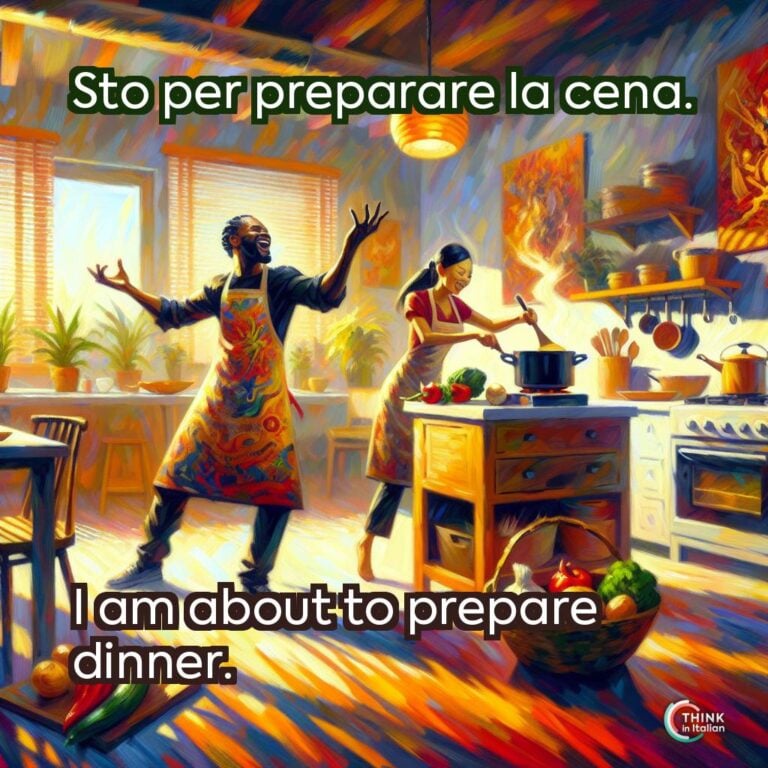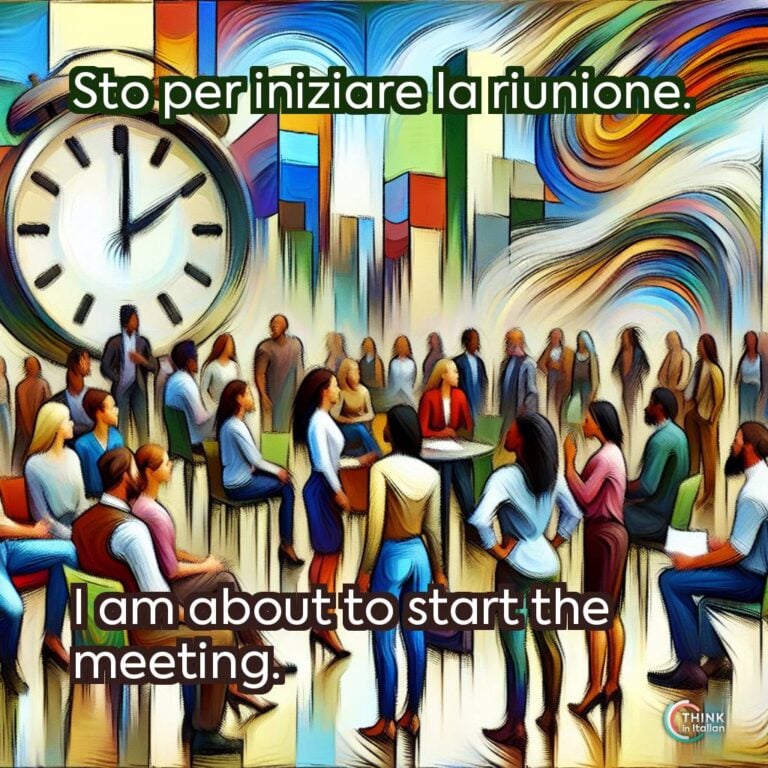How to say “to be About to” in Italian?
The equivalent structure of the English “to be about to” in Italian is stare per + infinitive. In both languages, it is used to say that we are about to do something or that something is about to happen in the near future.
Sto per andare a correre.
I am about to go running.
Sta per piovere.
It is about to rain.
Stiamo per uscire, ci sentiamo dopo.
We are about to go out, let’s talk later.
As you can see from the examples above, to use this construction you just need to conjugate the verb stare, add the preposition per, and the infinitive of the main verb.
Stare per + Infinitive
Use
Stare per + infinitive is used when an action will happen in a future very close to the moment when the sentence is expressed. I chose to use this general definition because this construction can be used with different verb tenses, depending on when the action will actually take place.
The verb that changes and must be conjugated to the different verb tenses is the verb stare. For instance, you can use it with the present tense for something that is about to happen now, but also with the imperfetto (imperfect) and futuro semplice (simple future).
Stavo per uscire quando ha iniziato a piovere.
I was about to go out when it started raining.
Luca stava per ordinare quando siamo arrivati.
Luca was about to order when we got there.
Non chiamarmi alle 15. Starò per partire a quell’ora.
Do not call me at 15. I will be about to leave at that time.
“Stare per” With Reflexive Verbs
As you know, reflexive verbs always require a reflexive pronoun. If you are wondering how this construction behaves when conjugating reflexive verbs, let me give you an overview.
If you are familiar with pronouns placement with Italian verbs, you might know already that the reflexive pronoun can be placed both before and after the verb.
This typically happens with infinitive verbs, as they are quite flexible in terms of pronouns placement. Now have a look at the examples below to see what this can result in:
Mi sto per lavare. – Sto per lavarmi.
I am about to wash myself.
Ti stavi per svegliare. – Stavi per svegliarti.
You were about to wake up.
Si staranno per vestire. – Staranno per vestirsi.
They will be about to get dressed.




